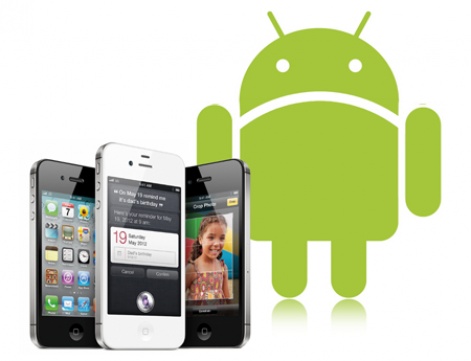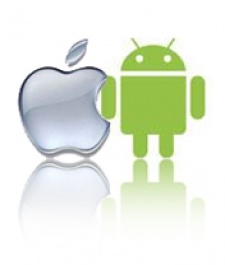Scores of those frantically refreshing liveblogs during Apple's iPhone expose yesterday may have collectively let off a groan when it was iPhone 4S, and not iPhone 5, that was unveiled to the world, but there's one question they should ask themselves it's this: why does Apple need to do anything more?
As with all product refreshes, iPhone 4S is a reaction to the moves Apple's competitors have made over the past year, and - Samsung's Galaxy S II aside - when Tim Cook looks down over the rest of the market, the number of serious challengers to iPhone's crown are few and far between.
The reason? That's simple. Android just can't compete.
Silent assault
I may be misinformed, but I very much doubt that when Google was formulating its smartphone assault, it gave much thought to Android as a consumer brand.
Android was a name to be banded around by manufacturers, developers, and the kind of astute fellows reading this article. The dear old consumer would likely never be aware of Android as a name, even if they had one in their pocket.
The shift came with the launch of Samsung's first Galaxy S in 2010 one of the first to carry consumer marketing that pushed Android as a selling point.
A response to the strength of the iPhone brand, suddenly the man on the street was offered an entire ecosystem as an alternative to iOS rather than just a new phone. This was also the point at which you attempted to sell Android phones on the number of available apps.
Problem was, though Android gave consumers looking to avoid the closed nature of iOS a brand they could invest in, that's all Android has come to mean: not iPhone.
Open and out
The reason is simple: the open nature of Android means that - as OEMs use it in various ways - it becomes all things to all men.
In this way, it's almost an anti-ecosystem.
Samsung pitches its Android devices as a high-end alternative to iPhone, while HTC goes for the middle of the market and LG - briefly - took the 3D route.
Throw into the mix budget-conscious devices from the likes of ZTE and the game-centric Xperia Play from Sony Ericsson, and you have a brand that's being stretched across multiple types of consumers at once.
A brand - it's also worth noting - Google does little to build or reinforce at a consumer level, although this may change with the Motorola deal.
Very few products successfully pitch their services at every type of customer, and Android's cause isn't aided by the fact that for many people, iPhone has become synonymous with the word smartphone.
When any product forms that kind of association think Hoover and vaccum cleaners, Jacuzzi and hot tubs, Tannoy and loudspeaker systems competitors automatically get labelled as deficient or inferior in some regard, whether they are or not.
Android has fast become that: an OS many consumers think plays second fiddle to the dominant player.
Face facts
Of course, there's nothing wrong with this.
Google never intended Android to become a brand in its own right, and to all intents and purposes, it hasn't. As an OS, it's become the most popular choice for smartphone consumers by sheer numbers without formulating any overlying brand.
Instead, the problem lies squarely with the Android manufacturers. As Motorola and LG have shown, finding space within a market crowded by scores of competing players is no easy task, even when the ecosystem as a whole is booming.
So those hoping that simply carrying the Android tag will enable their handsets to take on iPhone at the top of the charts will be disappointed: Android has little connection with the average consumer it's becoming a commodity, rather than a selling point.
Perhaps it would be best if Android reverted back to the faceless but functional OS Google initially envisioned it to be?
Instead, manufacturers need to follow Samsung's lead and foster an image of their own around their handsets, rather than the platform they run.
Until that point, Apple will continue to wheel out iPhone updates if, and when, it sees fit. After all, there's no point over-extending yourself unless the competition calls for it, is there?






















